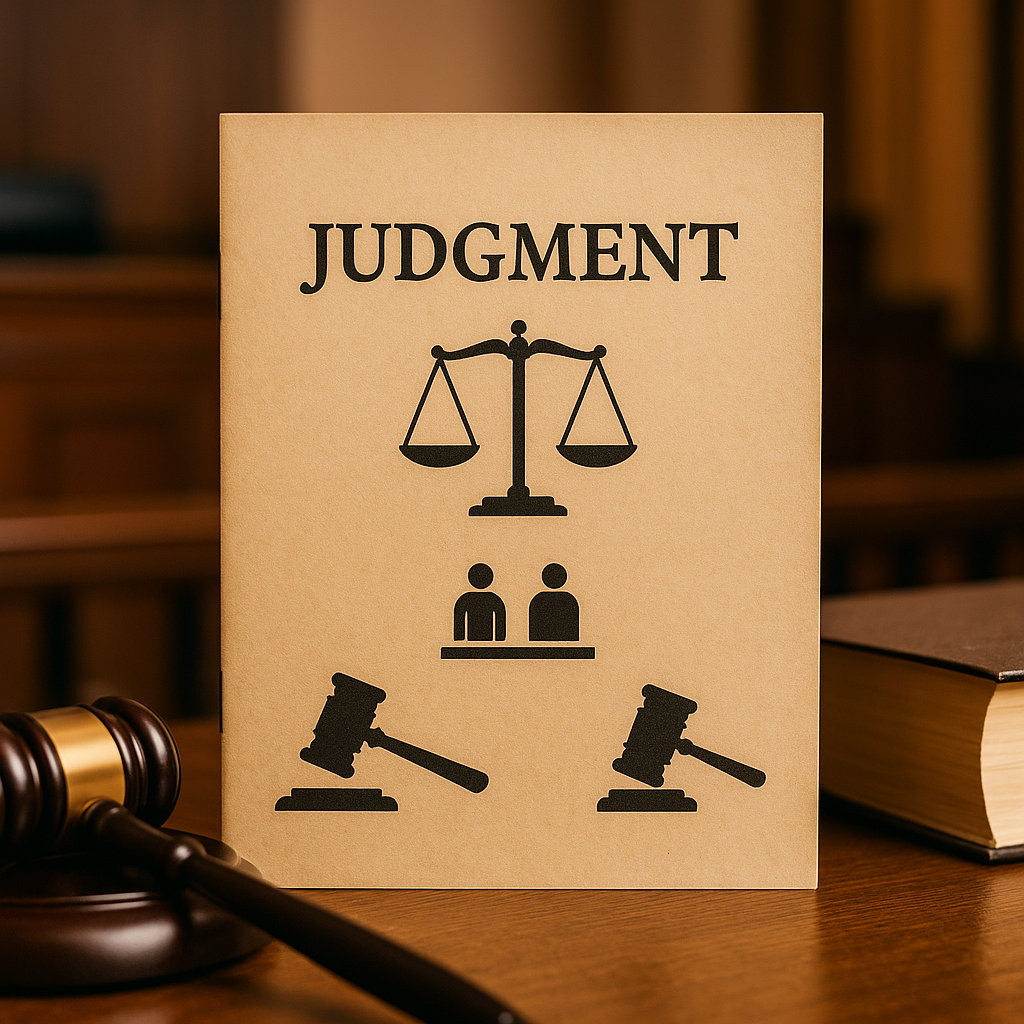Simplified Explanation of the Judgment
The Patna High Court recently resolved a long-standing family dispute regarding ancestral property through its judgment in two connected appeals—First Appeal No. 326 of 1986 and First Appeal No. 84 of 2016. These appeals stemmed from a partition suit (Partition Suit No. 26 of 1981) filed to divide joint family property among the heirs of three brothers.
The original suit was filed by the legal heirs of one of the three brothers, seeking a one-third share in the joint family property. They alleged that although the family members were cultivating the land separately, no formal partition had ever taken place. They requested the court to demarcate their share officially.
The defendants opposed this, claiming that a partition had already been carried out in 1972 through a Panchnama (informal agreement). They contended that everyone had been in possession of their respective shares since then and that some had even sold portions of the land.
The trial court, after reviewing the oral and documentary evidence, ruled in favor of the plaintiffs. It found that the 1972 Panchnama was not legally binding because:
- It was unregistered and hence not admissible as a valid partition deed under Section 17(b) of the Indian Registration Act.
- All legal heirs were not party to this Panchnama.
- Some signatories, including a minor, could not have validly agreed to a partition.
The court thus passed a preliminary decree in 1986, recognizing the plaintiffs and their co-heirs’ entitlement to one-third of the property. A final decree was passed in 2016 after the appointment of a Pleader Commissioner who measured and allocated the land accordingly.
The defendants challenged both decrees in the Patna High Court, repeating their argument that a valid partition had already occurred. However, the High Court dismissed both appeals, affirming the lower court’s findings. It held that the evidence did not prove a legally valid partition and that the plaintiffs were rightfully entitled to their one-third share.
Significance or Implication of the Judgment
This judgment reinforces critical principles of partition law within Hindu joint families. It emphasizes the importance of formal procedures for partition, particularly when multiple heirs are involved. For families owning ancestral properties, this case illustrates that informal arrangements (like a Panchnama) do not suffice unless all legal requirements—like registration and consent of all heirs—are fulfilled.
For the public, this decision clarifies that verbal or informal divisions of property will not hold legal weight unless documented and registered appropriately. The ruling also guides courts on how to assess such disputes—highlighting the burden of proof on those claiming earlier partition and underlining the value of proper local investigations and Pleader Commissioner reports.
Legal Issue(s) Decided and the Court’s Decision
- Whether the 1972 Panchnama constituted a valid partition?
➤ No. It was unregistered and not signed by all heirs, including minors. - Whether plaintiffs had unity of title and possession with the defendants?
➤ Yes. The joint family was presumed to be undivided, and the court found no valid evidence of prior partition. - Whether the report of the Pleader Commissioner was properly accepted?
➤ Yes. The High Court found it was fairly conducted and properly considered all factors like compactness and convenience. - Are the plaintiffs entitled to a one-third share and separate demarcation?
➤ Yes. The preliminary and final decrees were upheld.
Judgments Referred by Parties
- Kale & Ors. v. Deputy Director of Consolidation & Ors., (1976) 3 SCC 119
- Ravinder Kaur Grewal & Ors. v. Manjit Kaur & Ors., (2020) 9 SCC 706
Judgments Relied Upon or Cited by Court
- K. Arumuga Velaiah v. P.R. Ramasamy, (2022) 3 SCC 757
- Deoki Mallah v. Surji Mallahain & Ors., 1999 (1) PLJR 199
- Chandan Mull Indra Kumar v. Chimanlal Girdhardas, AIR 1940 PC 3
- Madhusudan Das v. Narayanibai, (1983) 1 SCC 35
Case Title
Ganga Bishun Singh v. Suresh Prasad Singh & Ors.
Case Number
First Appeal No. 84 of 2016 with First Appeal No. 326 of 1986
Citation(s)– 2025 (1) PLJR 77
Coram and Names of Judges
Hon’ble Mr. Justice Sunil Dutta Mishra
Names of Advocates and who they appeared for
- Mr. Bhola Kumar (for the Appellant in FA No. 84 of 2016)
- Mr. Naresh Chandra Verma (for the Respondents)
- Mr. Alok Kumar Sinha (for the Appellant in FA No. 326 of 1986)
Link to Judgment
MSM4NCMyMDE2IzEjTg==-9Q69Gq14xUA=
If you found this explanation helpful and wish to stay informed about how legal developments may affect your rights in Bihar, you may consider following Samvida Law Associates for more updates.








